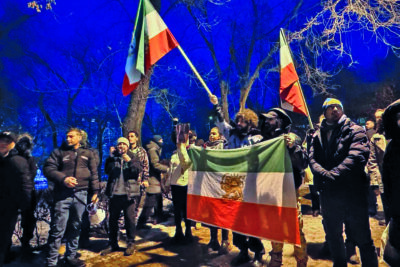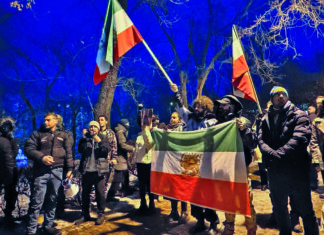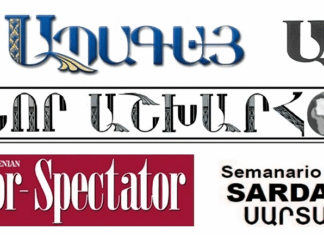YEREVAN / TALLINN — Estonian writer Armin Kõomägi was born in 1969, in Moldova. He started writing in 2003 when he was 34. His first book, published in 2005, was a collection of short stories titled Amateur. A short story from this collection, “Logisticians Anonymous,” received the Friedebert Tuglas Short Story Award in 2006. One of the short stories of this collection, called “Amateurs,” has been made into a movie in 2008. In 2006 he published another collection of short stories titled The Face That Was Left Over. This was followed in 2009 by his first novel, Runaways, and in 2011 by his second novel, The Good Firm. In 2012, Kõomägi contributed to the Dalkey Archive Press published Best European Fiction 2012, which contains a collection of new fiction from European writers. In 2015, Kõomägi won the Estonian Writers’ Union’s novel competition with Lui Vutoon, presented as a diary of a young man in the world, in which there are no people, but everything is complete and safe.
Armin, I have read Lui Vutoon in Russian translation. It is very multi-layered, there is almost everything: vivid imagination, philosophy, eroticism, naturalism, remarkable observations about life and society. Many questions remain unanswered, such as why all mankind disappeared and only two survived. And the open ending left me more confused. Nevertheless, I am glad I read your novel. The impatience with which you look forward to the next chapters, whether it was rewarded or not, speaks to your literary skills.
Thank you very much for your comments, Artsvi! To be honest, when I was writing it, I did not follow any certain concept. I allowed myself to write in the same way jazz musicians improvise. It could last for hundreds and hundreds of pages, but I just had to finish it off in some way. So, my goal was not to be clear what happened to the people, why they vanished. And the very same goes with the ending.
How would you describe its genre?
Unfortunately, I don’t have an answer to this question. When I start writing I don’t think of genre. Writing for me is a game, where there are no boundaries. The only instance I set restrictions for myself was when I wrote my last collection of short stories called The Heroes of Periphery in 2020. It is a collection of the mini short stories, where each text consisted of 1,000 words. The average length of a story was three and a half pages. It was quite a challenge. There are stories telling someone’s life from the start until the end, or even sagas reaching over centuries. It demanded a cruel decision of what to take and what to leave out. What was left, became thick as syrup. Despite its shortness, I advise reading only one story at a time; it’s impossible to relieve the thirst with syrup.
You have published Lui Vutoon in 2015, when the nightmare of the pandemic and the war in Ukraine did not yet exist. Why did you adopt such apocalyptic and eschatological moods back at the time?









